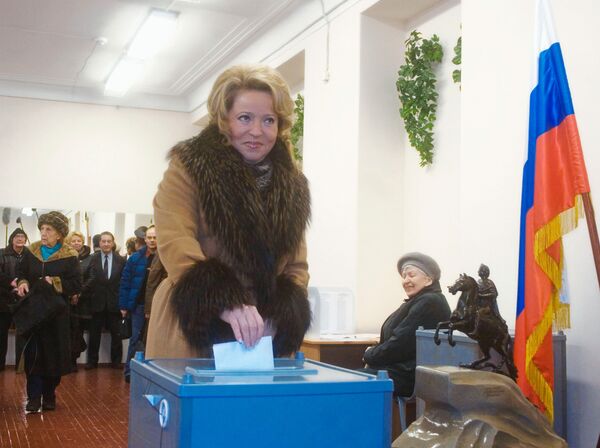MOSCOW. (RIA Novosti commentator Andrei Murtazin) - The latest parliamentary elections in Iraqi Kurdistan are a regional event and will in no way affect the geopolitical situation in the world.
The Kurdish parliament is still too young - it was formed in 1992 - and elections to it were held only twice - in the year when it was formed and in 2005 because of an unfavorable domestic and external political situation in the region.
Today, Iraqi Kurds have only two charismatic figures who play a role in world politics. These are 67-year-old Iraqi President Jalal Talabani, leader of the Patriotic Union of Kurdistan, and his main rival, 63-year-old Massoud Barzani, leader of the Kurdistan Democratic Party and head of the autonomous region of Kurdistan, which geographically includes three northern provinces of Iraq: Erbil, Dohuk and Sulaimaniya. It is these two politicians who share practically half and half 80 of 111 seats in Kurdistan's parliament. The other mandates are divided between smaller parties and movements. And though it is too soon to sum up the elections (early balloting is underway, with general elections set for July 25), no surprises are expected: Front runners will remain front runners, and the alignment of forces is unlikely to change.
Today, Iraqi Kurds do not seek separation from the central government in Baghdad. They do not need independence, come to that. Especially since one of the Kurdish leaders is the president of Iraq. Iraqi Kurds are now much better placed than Kurds in Turkey, Iran or Syria. After living through the genocide unleashed by Saddam Hussein, whose rule, according to Jalal Talabani, took a toll of 200,000 lives, the Kurds stopped being pariahs and became the second most influential force in Iraq after the Shiites.
Living standards in Iraqi Kurdistan are far higher than in Iraq's other provinces. Following the 1991 Desert Storm, Kurdistan turned into a "state within a state," which reports to Baghdad only formally. Saddam Hussein strictly fulfilled UN Security Council Resolution No. 688, which banned the presence of Iraqi troops and overflights by Iraqi military aircraft over Kurdish territory. Meanwhile, Iraqi Kurds did brisk business with neighboring Turkey and Iran, which allowed them to live quite well.
From a geopolitical viewpoint, Iraqi Kurds have been and will remain Washington's stalwart allies. Not only because they owe their liberation from the bloody dictator to the United States, but because the Americans did not start to "democratize" the Kurdish political elite, taking it for what it was and recognizing the legitimacy of two leading Kurdish parties and their leaders.
The Kurds' biggest problem is to keep a political balance inside Iraq and not to unleash an intestine war for influence in Kurdistan, as has often been the case during and before Saddam Hussein's rule. The bait could be oil in the Kirkuk province, neighboring on Kurdistan, which is claimed both by Barzani, head of the Kurdish region, and by the federal government represented by Iraqi Prime Minister Nouri al-Maliki.
However, it is not in the interests of Barzani and Talabani to quarrel with each other or with Shiite parties at the helm in Baghdad. Their relations today can be compared with those between Boris Yeltsin and Mintimer Shaimiyev in the early 1990s, when the Russian president and the strong regional leader engaged in a tug-of-war over oil revenues and other regional receipts, which the president of Tatarstan wanted for himself and refused to share with the federal center.
Similarly, Massoud Barzani, leader of the autonomous region of Kurdistan, seeks to conclude oil contracts directly with foreign partners, a practice vehemently opposed by Prime Minister Nouri al-Maliki.
The current Barzani-Talabani Kurdish alliance suits not only the Americans, but also Iraq's neighbors: Turkey, Iran and Syria. Ankara easily finds a common language with the Iraqi president, who has given Turkey carte blanche to wipe out Kurdistan Workers' Party militants entrenched in mountainous areas on the Turkish-Iraqi border. The party's leader, Abdullah Ocalan, is serving a life sentence in a Turkish jail.
Tehran is playing its own game but does not want to upset the situation either. On Kurdistan's border with Iran, there is a small radical group of Islamists called Ansar al-Islam, which consists of militants from Afghanistan and Arab countries, and ethnic Kurds. Their declared aim is "to set up an Islamic state" and "expel the American invaders" from Kurdistan. The group sprang up in Kurdistan in 2003, during the American invasion of Iraq, but in 2005, Talabani's and Barzani's armed units banished the fundamentalists from Kurdistan to Iran, where they are lying low and biding their time.
Syria, unlike Ankara and Tehran, takes no action against Iraqi Kurds. The status quo quite suits it. Especially since the Syrian Kurds have never stridently demanded any autonomy for themselves or opposed the official policy of Damascus.
The opinions expressed in this article are the author's and do not necessarily represent those of RIA Novosti.

